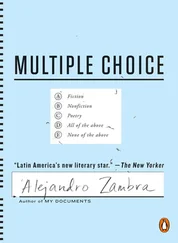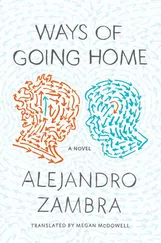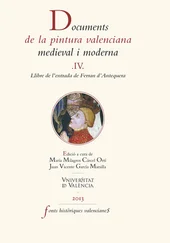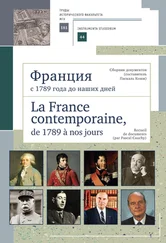30
I won’t commit the folly of going over my own life in those terms. But yesterday, at the office, Jovana and I were playing around with Excel, and we got caught up in some dangerous accounting. Now I have the approximate calculation of how many cigarettes I’ve smoked in my life. And the total amount of money I’ve spent on cigarettes. I’m keeping this notebook out of a kind of therapeutic intention, but I don’t dare write those numbers down here. I’m ashamed. I do a little division and determine that the monthly amount I’ve spent on cigarettes, for years now, is roughly equivalent to a mortgage. I am a person who has chosen to smoke rather than have a house. I’m someone who has smoked a house.
•
Another relapse. The details aren’t important. I was desperate and smoking didn’t solve the problem (because the problem doesn’t have a solution). I felt disgusted again, but at least I managed to distract myself.
•
Relapsed again: a prolongation of the one before, really. A semi-headache that I couldn’t soothe with the old medications. I don’t think it was a cluster, the pain was different. Also, my throat hurts, and my stomach, and my whole body.
“Sir, the tobacco on the tip of your cigarette is on fire,” said a character of Macedonio’s.
•
Day I-don’t-know-which of the year two thousand and never.
I remember when I was living in a godforsaken room in Madrid, in Vallecas, on La Marañosa street, sharing an apartment with three Spanish security guards (two men and a very pregnant woman, who worked in Barajas) and an Argentine ex-cop who was seeking his fortune. One morning, when I had a fever and had almost completely lost my voice, I lit a harsh Ducados cigarette, looked out the window, and recited aloud, in a tempered but exhilarated cry, Enrique Lihn’s poem about Madrid:
I don’t know what the hell I’m doing here
Old, tired, sick, and thoughtful.
The Spanish I was spawned with
Father of so many literary vices
and from which I cannot free myself
may have brought me to this city
to make me suffer what I deserve:
a soliloquy in a dead language.
It was as if I were greeting everyone and no one from my balcony, taking revenge on the city, but also, in a manner, in my own way, courting it. I think that morning’s Ducados is on the list of the best cigarettes I’ve ever smoked.
•
“To smoke the dark with will and great resolve,” says a poem by R. Merino. The image is exact: the last ember, raising one’s head to keep that bit of fire from falling, to avoid the disaster of losing it in the blankets and having to fumble around like a blind person, trying to put the cinder out. The danger of pulling a Clarice Lispector.
Another iamb, also by Merino, compassionate: “The one you smoke right now is all there is.” Onetti in bed without cigarettes, furious, bad-humored, writing The Well . It wasn’t existentialism, nothing of the kind: just lack of tobacco. “I’ve smoked my cigarette to the end, unmoving.”
I stopped smoking because of my clusters, but maybe that wasn’t the main reason. The thing is, I’m cowardly and ambitious. I’m such a coward that I want to live longer. What an absurd thing, really: to want to live longer. As if I were, for example, happy.
I’ve finished the pills now — day ninety has come and gone. And I’ve stopped counting the days. I don’t smoke now. Now I say it with certainty: “No, I don’t smoke.” I want to smoke, but it’s an ideological desire, not a physical one.
Because life without cigarettes is not any better. And the fucking headaches will come back sooner or later, whether or not I smoke.
•
“Violent headache today, but pretty happy,” notes Katherine Mansfield in her journal. Does she mean the headache is violent, but less so than usual, and thus pleasant? I don’t get it.
Jazmín Lolas interviews Armando Uribe:
“You’ve never worried that cigarettes will kill you?”
“You know, I don’t care; I don’t support the idea that human beings, on average, should live for so many years.”
•
The best-selling Mexican author Fernanda Familiar — TV star, blogger, and close friend of Gabriel García Márquez — strolls around the Lima Book Fair with an electronic cigarette. It’s the newest invention for quitting smoking, and right now it’s the product I desire most. They don’t sell them at the fair, unfortunately, and I hear they’re expensive. What’s more, I’ve already quit smoking. How idiotic: now I can’t even try to quit smoking.
Not only did I quit smoking, I also quit trying to quit smoking.
For two hundred soles —approximately seven double pisco sours, extra large — I buy first editions of Agua que no has de beber by Antonio Cisneros and Los elementos del desastre by Álvaro Mutis, random finds that would justify any trip. But I don’t read them. It seems that I no longer like books.
•
I should say, copying Pessoa: “I arrived in Santiago, but not at a conclusion.”
Yesterday some people asked me what, in my opinion, was the main problem with Chilean literature. Now, to begin with, it’s pretty absurd that a hallway conversation can lead to a question like that — hallway conversations always fail, or at least that’s how it seems to me — but I answered, with conviction, that the problem with Chilean literature was the custom of writing cigarrillo instead of cigarro . In Chile no one says cigarrillo , we say cigarro , I argued, as if pounding on an imaginary table, but Chilean authors always write cigarrillo , and I ended with this absolutely demagogical sentence: “I am a writer who writes cigarro .”
The declaration had an immediate effect. They seemed to approve of it, but then the conversation went downhill. Conversations between more than four people never end well, especially if they take place in a hallway. I have to accept, of course, that I’m depressed and a little irritable. My behavior exasperates me.
•
To burn the midnight oil, as they say. Nights without sleeping, spent reading or writing, the ashtray overflowing. Just before dawn, I’d be putting out cigarettes in the dregs of my coffee cup, which, with all of the butts sticking out of it, ended up looking like some sort of horrific pincushion. I remember it now with nostalgia.
How old was I when I read Zeno’s Conscience ? I think I was twenty or twenty-one. I have almost never laughed so much, although at the time I thought you weren’t supposed to laugh at books. “It’s bad for me, so I will never smoke again. But first, I want to have one last cigarette.”
“Everything is infinitely lamer now,” Andrés Braithwaite confessed to me two years ago, when he was on Champix. He looked defenseless, a timid puppy barking at the abyss. Then he told me that, without smoking, no book was good — he didn’t enjoy reading anymore. I saw him again months later, and he looked so handsome when he lit a cigarette and told me, looking me in the eyes: “I’m cured.” That afternoon my friend talked to me about fabulous authors he had just discovered, about unthinkable novels and brilliant poems. He had regained his passion, his roguishness, and his decorum. And the love for the vibration of his own voice. And his beauty.
Today, at some point, I felt this: an orphaned relief. And I accepted that it’s true, that everything is infinitely lamer. Literature, for sure. And life, above all.
I am a person who doesn’t smoke due to the invasive effect of a chemical that ruined his spirit and his life. I am a person who now doesn’t even know if he’s going to go on writing, because he wrote in order to smoke and now he doesn’t smoke; he read in order to smoke and now he doesn’t smoke. I am a person who no longer creates anything. Who just writes down what happens, as if it would interest someone to know that I’m sleepy, that I’m drunk, that I hate Rafa Araneda with all my soul.
Читать дальше












